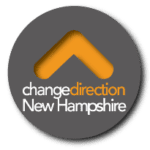Concord students work to address substance use in new American community
 By LEAH WILLINGHAM – Concord Monitor
By LEAH WILLINGHAM – Concord Monitor
Monday, December 31, 2018
Lionel Grassi was full of dreams when he moved to the United States.
Then 19, Grassi had been running his family’s bakery in Argentina for years, and he wanted something more for himself. He chose to leave his home country to pursue an education in Boston to become a Spanish and Portuguese translator.
But the transition was more difficult than he imagined. Grassi missed his family and he struggled with the English language.
“I was used to being very independent, but I had to ask everybody to help me because I couldn’t communicate,” he said. “I felt lonely and unaccepted.”
One avenue that gave Grassi some relief was drugs and alcohol. But that habit came at a cost – Grassi’s substance use steadily became worse and over time he lost his connections with his family, his job and he dropped out of school. He was homeless for more than three years.
“I was the guy sleeping at train stations asking for spare change,” he said. “If you told me I was going to come into the United States and live that kind of life, I would have said, ‘You’re lying to me.’ But it does happen.”
Grassi, who is now a retired business owner and a recovery coach for Riverbend Community Mental Health, spoke to a group of new American students at the Concord Parks & Recreation Center on Canterbury Road on Thursday night.
He said he didn’t realize how much time it would take to adjust to life in the United States when he first moved here, and he wished he had been more patient.
“It takes time to learn a new language and adjust, but you don’t realize how much pressure that is in the beginning,” he said.
Clement Kigugu of Overcomers Support Services, who worked to organize the event, said substance misuse is a growing issue in Concord’s refugee community.
“Refugees don’t know how to access the resources that are available. Many are afraid to ask for help and feel lost when they try,” he said.
New Hampshire is one of the leading states in America for overdose deaths per capita, and it also contains cities like Concord, Nashua and Manchester, which have accepted thousands of refugees fleeing war in Africa and Asia. As the state grapples to find ways to help individuals struggling with opioid addiction, many new Americans are falling through the cracks, experts say.
Through his organization, Kigugu helps people with health referrals, transportation to appointments, counseling, English language skills, and hosts a youth and women’s support group. But he’s not an expert on substance use, he said, and he needs more resources to help his community.
Kigugu invited a panel to speak to students including Grassi, Ryan Howe from the Concord Police Department and Tara Davis-Thompson, a drug and alcohol counselor at the Family Health Center.
The group informed the audience about myths about drinking and drug use, like that a cup of coffee or a shower can sober a person up. They taught attendees about New Hampshire’s Good Samaritan law, which protects those who call law enforcement to help a friend who may be overdosing, even if the caller has been using drugs.
Kigugu also invited a panel of college students and high school seniors to talk about their experiences.
Jane Yen, a student at NHTI, said there is more peer pressure to try alcohol and drugs when students get to college.
“A lot of people will influence you to do bad things that will take you away from trying to pursue your career,” Yen said. “You have to be able to learn that when you’re in a position where someone is telling you, ‘Oh, it’s okay, drink this, or take this drug,’ you have to be able to think to yourself, ‘Is this where I see myself going? Is this the road I see myself going down?’ ”
Fisto Ndayishimiye, a Concord High School senior born in the Democratic Republic of Congo, said he had a hard time when he moved to the United States just two years ago. He felt like he was constantly behind kids in his class, but instead of turning to drugs or alcohol, he studied harder.
His hard work paid off – Ndayishimiye will be a freshman at New England College this fall.
“Don’t try to get these cool kids to accept you. That’s not working hard – that’s failing,” he said.
Ennosen Yen, a senior at Concord High School from South Sudan, said there can be cultural barriers to asking for help.
“Especially in African culture, you can’t go to your parents and say, ‘I have a drug problem, or I have mental illness’ because the culture very strictly follows tradition, and we don’t feel comfortable with being open about those kinds of issues,” she said.
Speline Irakoze, a Concord High School senior from Burundi, said it takes young people setting a good example for other young people to create change – especially for new Americans, who might need the extra support.
“When they see us standing up there, saying ‘Hey, this is not right, and these are some ways you can stop’ and offer them resources, they’ll be able to see that and continue to spread that message in their own families and friend groups,” she said.
